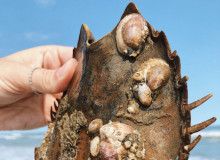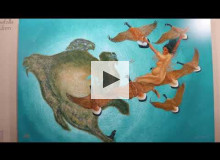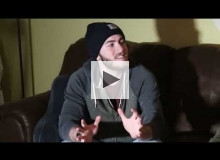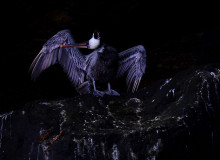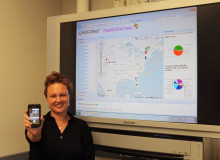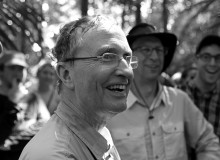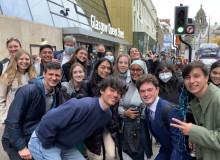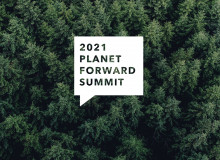education
George Washington University
The coasts offer a window into the function of relational ecology in sustainable development: to address the question of how a community's connection to the ocean impacts the development of aquaculture.
SUNY Environmental Science and Forestry
Located on Onondaga Lake, what was once deemed as the second most polluted lake in the nation, the Skä•Noñh Center highlights what it means to care for the Earth.
SUNY ESF
This is a video of interviews with a flat earther who still believes in climate change.
Planet Forward Senior Correspondent
When we think of the Galápagos islands, we think of the incredible biodiversity that once inspired Darwin’s theory of evolution. But what many of us don’t learn about is the humans who also live here.
Planet Forward Correspondent | SUNY-Plattsburgh
Dr. Danielle Garneau, wildlife ecologist, is an attentive driver. The serpentine roads of upstate New York, which she drives along daily, are trafficked with possible hazards –– but what she's really scouting for is roadkill.
Founding Director, Planet Forward
Our beloved friend and Planet Forward Advisory Council member passed away on Christmas Day. We remember and celebrate a remarkable life.
University of Connecticut
In November, I traveled to Glasgow, Scotland for COP26 with four professors and 15 University of Connecticut students, representing 13 different majors. The students shared why they attended the conference and what they learned there.
Planet Forward FAO Fellow | Emerson College
Interest in sustainable farming practices is building, and while independent and governmental conservation organizations can be good resources for promoting ecological practices, farmers say that swapping information peer-to-peer works best.
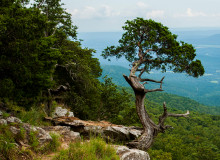
The view from a bluff in the Ponca Wilderness in Compton, Arkansas. These lands, like much of what is now the state of Arkansas, are native to Indigenous peoples including the Osage, Sioux, Quapaw, and Caddo. (Image courtesy of Thomas Shahan/Flickr https://creativecommons.org/licenses/by/2.0/).
Digital Editor, Planet Forward
Indigenous professor Dr. Bethany Henry Rosenbaum asked a powerful question: How do we bridge the Indigenous understanding that removal of Native people is still impactful today with the Western understanding that it’s in the past?
Founding Director, Planet Forward
Our 2021 Summit event hosted some of the most compelling guests — and conversations — we've ever had. Whether you want to re-watch a portion, or check out the entire event, we have all the info here.

